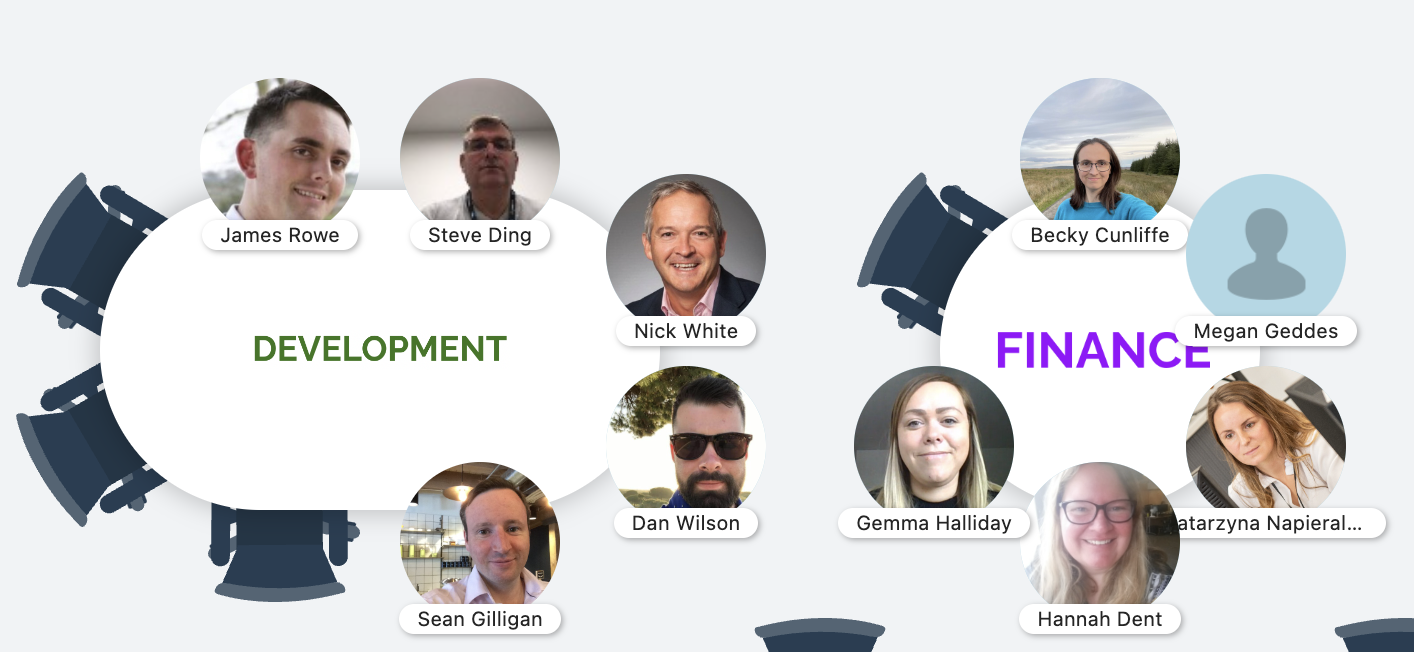Productivity Paranoia
Event Anywhere Team

More than two years after remote work and hybrid jobs became widespread, there’s still a stark divide over how it’s going according to a recent Microsoft survey. About 85% of managers worry they can’t tell if employees are getting enough done, while 87% of workers say their productivity is just fine.
The truth is that your employees might be right—they are working just fine. But here’s the thing: Productivity isn’t just about how much time you spend on a task. It’s also about how much value you can add to your company. And this is where managers and employees often have different expectations.
Managers tend to think that productivity means “doing more stuff.” But in reality, productivity is defined by the length of time it takes for an employee to complete a task and deliver its results. If an employee has a lot of tasks piled up in his or her queue and manages to get through them all within an hour, then he or she has demonstrated incredible productivity even though nothing was accomplished in that hour.
Of course, this definition doesn’t mean that managers shouldn’t care about the amount of time their employees spend on tasks. They absolutely should—it’s important for managers to know whether their team members are working efficiently or not so they can plan accordingly.
Productivity paranoia is a serious problem. It’s the fear of wasting time or not being productive enough and constantly comparing yourself to others.
Fear of being judged
You might be afraid that if you work from home, your co-workers will judge you. You could feel like they’ll think you’re lazy or unprofessional or less committed to your job. You may feel like they’ll treat you differently because they can’t see what kind of hard work it takes to get things done while also caring for family members in the same room as your desk.
If this sounds familiar, consider this:
- Your co-workers are likely just as busy as everyone else is right now. They might not even notice that much about what goes on in the office space because there’s so much going on in their own lives at home and work.
- It’s important to show up every day even when it feels like nothing is getting done. Some days will be easier than others, but being consistent is crucial for achieving results and feeling good about yourself along the way.
Fear of being disconnected
You are not alone in your fear of being disconnected. We have all experienced the feeling of being disconnected from something important, whether it be an event or a conversation. The fear of being disconnected is called “fear of missing out” or FOMO for short.
FOMO is the fear that you will miss out on something good if you don’t participate in the activity at hand. When used as a verb, to use FOMO to describe someone’s behavior means they’re using their own feelings of inadequacy (they haven’t been invited) as justification for doing something they know they shouldn’t do (something risky). For example: “He FOMOs every time he turns on his phone at work.”
Fear of missing out
You might have heard of FOMO, an acronym that stands for “fear of missing out.” It’s a pervasive feeling that you need to be doing something else—a modern phenomenon caused by technology and social media. Although it can seem like there are few ways around this anxiety, there are ways for modern employees to combat this fear of missing out.
One way is through teamwork and collaboration with coworkers, who may also experience similar feelings of FOMO as they attempt their own tasks within the workplace environment. The act of collaborating on projects is not only beneficial for employee morale but also allows a sense of belonging.
Fear of being inefficient
Fear of being inefficient. This is a big one. Managers fear that their employees will be less productive working from home, while the same employees often claim to be more productive when they can do it on their own time. Some companies have tried to make up for these perceived productivity losses by implementing surveillance software that tracks employee actions, but this is an unfair and unnecessary step.
The key to keeping everyone on your team happy is getting continuous feedback from them through polling. You’ll know exactly what you need to do next based on how your team feels about the direction of your company and this avoids guessing.

Challenge yourself to use events for your productivity and motivation
Events are the best way to get feedback from your team. They can give you an idea of how they’re feeling, what they need to be successful, and whether or not they feel like they’re making progress in their work. If things aren’t going well with a project, it’s good to know before it becomes a bigger problem.
Events are also great ways to build social capital—the value that comes from being more involved with others in your company or organization. When people see how much time and energy you put into attending events like this one, they’ll trust you more (and trust is one of those things that matters when it comes to promotions).
Events offer other benefits as well: motivation for yourself (because nothing beats a big crowd cheering for someone who’s just done something amazing), opportunities for personal growth (by learning from other speakers or addressing tough questions), a chance at making new friends (you never know who will show up!), or just learning about new technologies that could be useful someday down the road!
Team cohesion is an important part of business success. It’s also a challenge that many companies face, but digital communities can help you overcome it.
Empower your people to be productive and to collaborate with one another by listening to them at scale. Ensure the well-being of your staff by taking into account their needs and desires as well as those of other employees.
To build social capital for your company, bring people together with events and activities that encourage them to form relationships with one another. For businesses to succeed, employees need to thrive—they need energy and ambition for their mission if they’re going to put in the effort it takes to make things happen.
It’s hard to be productive when you’re busy worrying about productivity. When it comes to managing time, try focusing on doing less rather than doing more. When you can let go of tasks that don’t matter as much or have a low impact on your overall effectiveness as a worker, you’ll find yourself with more time for the important things.
Productivity is something that we all strive for in our work lives, but it can sometimes become an obsession that leads us down a rabbit hole of stress and anxiety over whether or not we’re getting enough done each day. We may even neglect other areas of life because they aren’t considered productive enough—things like spending time with friends and family members or watching TV. As long as we don’t let our productivity paranoia take over our lives entirely though, there are plenty of ways to make sure we get everything done without stressing ourselves out too much about it.
Building a transparent online community bridges the productivity paranoia gap between employees. Managers get to see the great work being done and can help and support when needed. Employees can see how their peers are aligned on goals and tasks to help execute strategy when working at a distance. Online communities can be the next best thing to an office when hybrid work is the default.